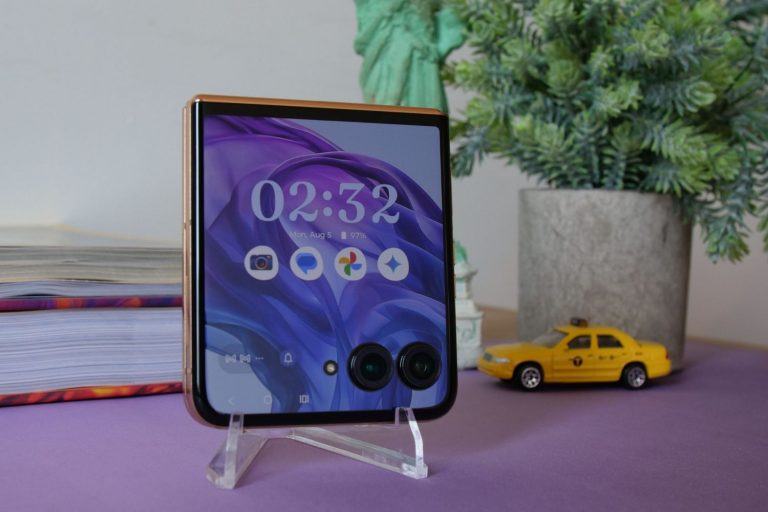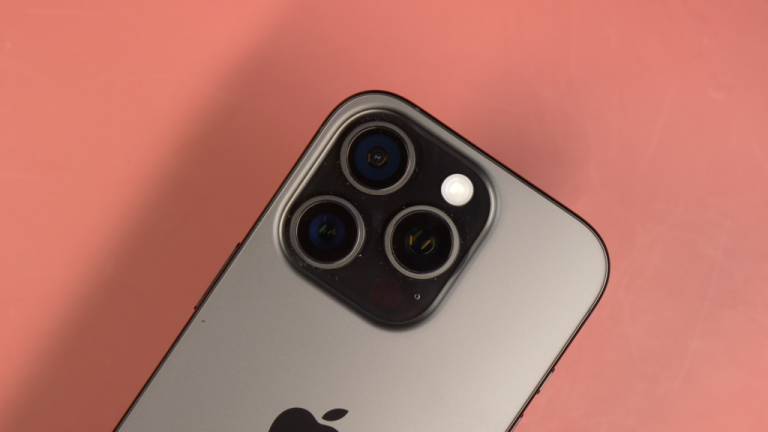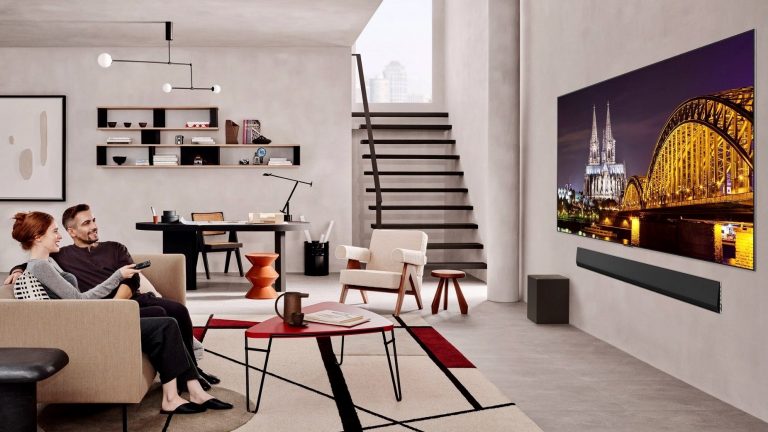2023 Land Rover Range Rover Review: Running Out of Room for Improvement

If you ever forget what you’re driving, just look at the hood.
There’s no missing a Range Rover. Whether it’s the prominent letters emblazoned fore and aft, or the unmistakable silhouette, this large luxury utility vehicle has capital-P presence everywhere it goes, and its latest generation is no different. The 2023 Range Rover holds true to the tenets that have kept this ute at the top of the luxo-barge pile, and its latest batch of changes will certainly keep it there for years to come.
Like
Serene ride
Impeccable style inside and out
Oodles of capability
Don’t like
Not electric… yet
Noisy motorized doohickeys
Typical JLR infotainment quirks
At first, I thought the 2023 Range Rover’s aesthetic was a bit too close to that of its predecessor but getting up close and personal has changed my tune. The new model looks stunning in person. There isn’t a single overwrought design element on the exterior; the body panels are as smooth as glass and devoid of shouty features. The way the Range’s signature vertical taillights now integrate seamlessly into the tailgate’s horizontal black elements makes the new rear end look like a freakin’ spaceship. I’m especially a fan of my tester’s $7,450 satin-finish gold paint, which plays well against the blacked-out trim ($1,000), black roof ($1,000) and 23-inch black alloy wheels ($900).
The Range Rover’s cabin prioritizes simplicity over the last generation, and it works well. The busiest parts of the interior have all been smoothed over, starting with the vents that now comprise a single unbroken element between the dark and light parts of the dashboard. The window switches have been moved down near the door handles. The center console offers way more accessible storage, no longer shoving the cup holders off to the side while also making room for a cubby and a wireless device charger under the climate controls. The 13.1-inch touchscreen and 13.7-inch digital gauge cluster don’t look like tacked-on afterthoughts. The heated, cooled, massaging front seats are supremely comfortable on longer trips, keeping road fatigue at bay.
My tester is the short-wheelbase variant, so there are only two rows of seats, but those in the back may have it even better than the folks up front. The rear seats offer an impressive amount of recline, and the front passenger seat can be shoved forward so a chauffeured individual can make use of the foldable footrest. The middle seat is actually a mechanized center console, slowly descending and extending to reveal an additional control panel and, with a little extra motor motion, two cup holders. The short-wheelbase Range Rover still offers a meaty 43 cubic feet of cargo space, and the motorized tonneau cover means whatever is stashed back there will remain out of view.
All that serenity stays at the forefront, even when the 2023 Range Rover is in motion. My tester packs a BMW-sourced 4.4-liter twin-turbo V8 engine, making 523 horsepower and 553 pound-feet of torque. It’s enough to shove off from every stoplight with an alarming amount of authority, but the engine note never really rises to a clamor — it stays off in the distance, offering just enough rumble to remind you it’s there. The standard eight-speed automatic transmission does a good job on the upshifts, but it can feel a little janky on the way back down, mostly within the last few feet of stopping. It’s not really a major source of annoyance; if anything, it has me excited for how smooth the upcoming electric variant will be.
The Range Rover’s V8 is quite good, but it’ll be tough to top the outright serenity an electric powertrain will eventually provide.
It’s impressive how every driving input is tailored for outright smoothness. The Range Rover’s gas pedal offers plenty of room for smooth, gradual starts, while the brake pedal’s long, squishy throw makes head-bob-free limo stops easy to execute. The steering is overboosted to high heaven, with a lightweight feel that makes it easy to make small adjustments without jostling the occupants.
The Range Rover’s ride quality is palatial, right up there with the Rolls-Royce Cullinan. The standard air suspension soaks up nearly every road imperfection and returns nothing but softness. Save for a bit of wind noise around the mirror and A-pillar at Michigan’s 80-mph average highway pace, the cabin is free of any clamor that isn’t coming from the standard Meridian surround-sound system. In fact, the noisiest part of the whole Range Rover experience comes at the beginning and end, when the flush door handles retract or extend from the body, which is a surprisingly loud affair. I’m kind of surprised they aren’t quieter.
Not only are the motorized door handles a little loud, the interior handles are surprisingly well hidden. First-time occupants may take a few seconds to figure out how to leave.
The motorized door handles are cool, and while they undoubtedly contribute to better fuel economy, the numbers still aren’t great with a V8 under the hood. The EPA estimates this Range Rover is good for 16 mpg city and 21 mpg highway, numbers I had no problem matching over a few hundred miles of urban and interstate cruising. Then again, considering CNET’s long-term Hyundai Santa Cruz only offers 3 mpg more at freeway speeds, perhaps these numbers aren’t too shabby, given how much luxury the Range Rover drags along with it.
Cabin tech has long been a hit-or-miss affair with Jaguar Land Rover, but the 2023 Range Rover’s infotainment system is firmly in the former category. The 13.1-inch touchscreen runs JLR’s Pivi Pro telematics software. The aesthetics are good, the menus are easy to navigate and the responsiveness is better than it’s ever been. But it’s still not free of random frustrations. Over my week with the Range Rover, wireless Apple CarPlay stopped working mid-drive about a half-dozen times and wouldn’t work again until I turned the SUV off and back on. If you’d rather skip the phone-based software, the Range Rover’s embedded navigation works great.
Pivi Pro looks great, but it can still be a little frustrating at times.
The 2023 Range Rover is also loaded with all the standard safety systems its parent company can whip up. The adaptive cruise control is nice and smooth, and the hands-on lane-keep-assist system dramatically reduces the tedium on longer road trips. The surround-view camera and parking sensors make any parallel parking job a breeze, but you can always ask the car to handle that legwork, too, with available hands-free parking assist. My favorite part comes when reversing; the system will let me know when I’m parked too close to an object for the trunk to open fully.
While the 2023 Range Rover starts just a hair over $100,000, my V8-powered First Edition tester is loaded up with all the bells and whistles as standard, sending that starting price to an eye-watering $159,550, including $1,350 in destination. Throw in the aesthetic packages I mentioned earlier, and you’re staring down a bill of $169,900. The SV trim is still more expensive, nearly cresting the $200,000 mark in short-wheelbase form, but the First Edition isn’t far behind.
But you get what you pay for, and your money is not going to waste on the 2023 Range Rover. This car is, simply put, one of the best luxury-vehicle experiences money can buy right now. Its on-road demeanor is next to none, and it has a style and presence that many other luxury cars can’t match.
#Land #Rover #Range #Rover #Review #Running #Room #Improvement






